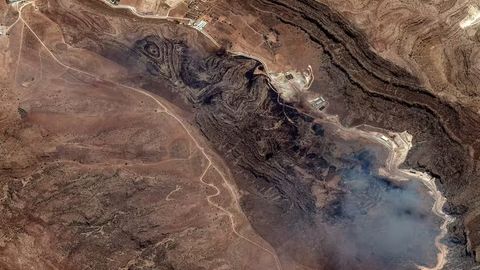Dobrynin’s absence linked to ‘lack of evidence,’ claimant’s lawyer says
15:48 / 25.02.2026
Uzbekistan, Central Asian states abstain as UN General Assembly backs Ukraine ceasefire resolution
15:07 / 25.02.2026
Central Asia advances unified power market with $3.2 mn CAWEP grant
14:18 / 25.02.2026
Uzbekistan, Afghanistan aim to increase trade turnover to $5bn
13:06 / 25.02.2026
Investment portfolio of Uzbekistan’s Karakalpakstan region exceeds $8bn
12:00 / 25.02.2026
Recommendations
Menu
Good news:
Tags
Grow your business with us
Advertise on Daryo.uzIndividual approach and exclusive materials
Ad-free site readingSubscribe
25 000 sum per month






Comments
To leave a comment, first